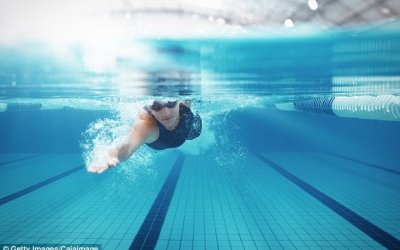- Latest news▼
-
12:16, April 19 Scientists grow human mini-lungs in lab

-
10:23, April 19 JAMA Oncology: Urine test can help rule out high-grade prostate cancer with almost 100% accuracy, study shows

-
18:00, April 18 Daily Mail: Elderly woman in China gets infected with brain-eating amoeba

-
14:19, April 18 Obesity: exercising before breakfast helps you lose weight faster

-
10:42, April 18 The Conversation: childhood trauma can cause pathological hoarding

-
08:37, April 18 Daily Mail: Satiating food reduces cravings for sweets, nutritionist says

-
18:22, April 17 First Armenian-German Conference entitled “Heart Failure Spring School”

-
08:38, April 17 Why do kids usually recover from COVID-19 more easily than adults?

-
14:37, April 16 Daily Mail: intermittent fasting is not suitable for children and women before their periods

-
16:41, April 15 Cell: in carriers of defective BRCA2 gene, sugar consumption increases cancer risk

-
15:04, April 15 305 cases of measles recorded in Armenia so far in 2024

-
14:38, April 15 Food and Environmental Virology: tea contributes to effective coronavirus control

-
12:41, April 15 Daily Mail: vitamin A, B3 and E supplements can be dangerous

-
10:56, April 15 Diabetes Care: evening physical activity is good for the heart

-
08:27, April 15 Women are more susceptible to blood loss and death during bypass surgery than men, researchers say

All materials
Why your eyes really go red in the swimming pool

Red eyes are something most swimmers have experienced in a pool.
However, although it is usually based on the amount of chlorine in the water, researchers have warned the reality is far less appealing.
They say the real cause is urine in the pool.
Health experts from the U.S. Centers for Disease Control and Prevention (CDC), the Water Quality and Health Council and the National Swimming Pool Foundation (NSPF) say the problem of people urinating in pools is so bad they've launched a new campaign to educate people.
According to a new survey conducted by Survata on behalf of the Water Quality and Health Council, nearly half of Americans surveyed incorrectly believe that there is a chemical that is added to pools that turns a conspicuous color in the presence of pee.
In the same survey, 71 percent also incorrectly blame chlorine for causing swimmers' eyes to become red and irritated.
'Chlorine and other disinfectants are added to a swimming pool to destroy germs.
'Peeing in a pool depletes chlorine and actually produces an irritant that makes people's eyes turn red,' said Michele Hlavsa, chief of CDC's Healthy Swimming Program.
'The solution isn't rocket science; it's common courtesy.
'Swimmers should use the pool to swim, the restroom to pee and the showers to wash up before getting in the pool.
'It's that simple.'
'There isn't a dye that turns red.
'It's the eyes that turn red.
'Swimmers' eyes are the real color indicator that someone might have peed in a pool,' said Thomas M. Lachocki, CEO of the NSPF.
'That 'chlorine' smell at the pool isn't actually chlorine.
'What you smell are chemicals that form when chlorine mixes with pee, sweat and dirt from swimmers' bodies,' said Chris Wiant, Chair of the Water Quality and Health Council.
'These chemicals – not chlorine – can cause your eyes to become red and sting, make your nose run and make you cough.'
When nitrogen-containing compounds found in pee, sweat and dirt combine with chlorine, irritants are formed.
These substances, not the chlorine itself, irritate the eyes, skin and respiratory system. In this case, more chlorine may actually need to be added to pool water to break down irritants, according to the Water Quality and Health Council.
Lachocki added that swimming keeps us happy and healthy.
The CDC and the American Chemistry Council also have collaborated on a brochure that includes key messages about healthy swimming, which include showering before swimming and not peeing in a pool.
Follow NEWS.am Medicine on Facebook and Twitter
- Video
- Event calendar
- Archive
- Most read
month
week
day
- WHO: Nigeria pioneers revolutionary meningitis vaccine 1178
- One-third of women experience menstruation-related migraines, most often during premenopause - study 1143
- Daily Mail: vitamin A, B3 and E supplements can be dangerous 979
- Food and Environmental Virology: tea contributes to effective coronavirus control 979
- Women are more susceptible to blood loss and death during bypass surgery than men, researchers say 960
- Cell: in carriers of defective BRCA2 gene, sugar consumption increases cancer risk 951
- 305 cases of measles recorded in Armenia so far in 2024 943
- Diabetes Care: evening physical activity is good for the heart 919
- Daily Mail: intermittent fasting is not suitable for children and women before their periods 760
- First Armenian-German Conference entitled “Heart Failure Spring School” 545
- Why do kids usually recover from COVID-19 more easily than adults? 424
- The Conversation: childhood trauma can cause pathological hoarding 423
- Obesity: exercising before breakfast helps you lose weight faster 420
- Daily Mail: Elderly woman in China gets infected with brain-eating amoeba 383
- Daily Mail: Satiating food reduces cravings for sweets, nutritionist says 380
- Find us on Facebook
- Poll





